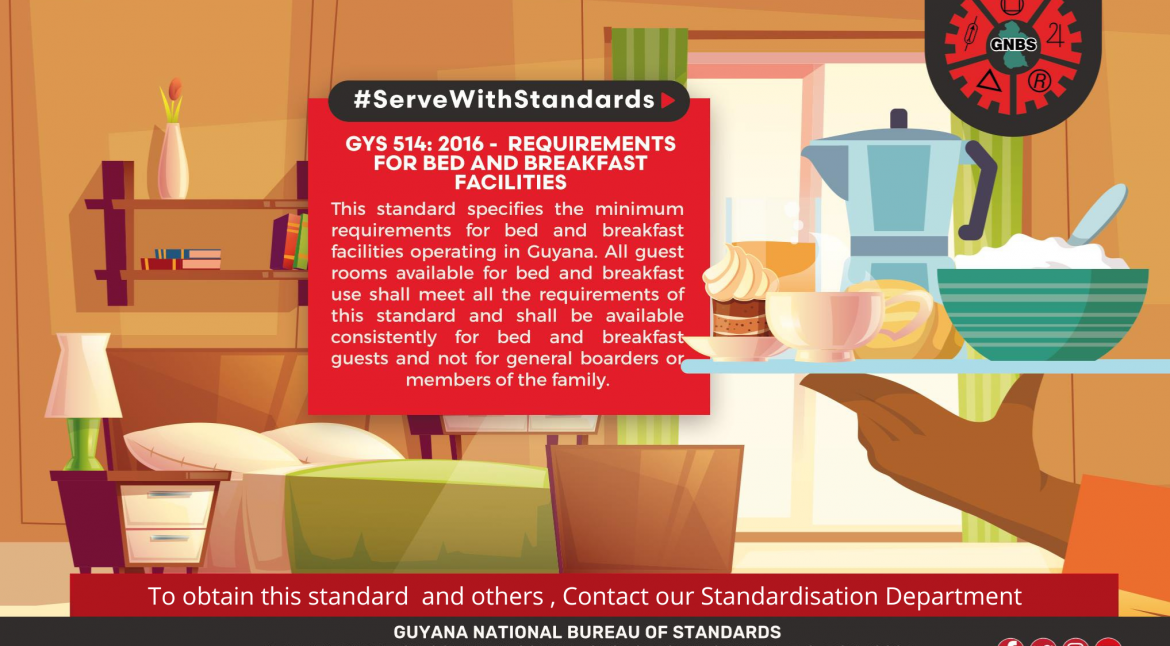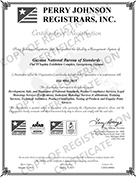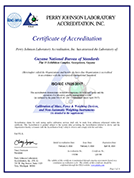Later this week, cricket fans in Guyana will have another experience of a lifetime as our country hosts eleven exciting Caribbean Premiere League (CPL) 20/20 cricket matches, which include the finals. For certain, these eagerly anticipated games will cause an influx of visitors from the Caribbean and elsewhere to our country. These fans will be repping for their respective teams to win, and our accommodation providers must up their game and win as well. Our restaurants, bed and breakfast facilities, guest houses, lodges and hotels must provide a tourist experience that is hinged on standards and quality service.
The Guyana National Bureau of Standards (GNBS) has been promoting its range of tourism standards to those within the sectors to encourage the implementation of the requirements and guidelines to ensure they meet and exceed tourist and user expectations.
Homeowners offering Bed and Breakfast facilities can ensure they implement the requirements of the National Standard for Bed and Breakfast Facilities (GYS 514:2016) to benefit from likely business opportunities. This standard, which specifies the minimum requirements for bed and breakfast facilities operating in Guyana, was formulated to improve the quality of services offered by local providers of bed and breakfast facilities. The Code of Practice also addresses minimum requirements for rooms, which include sufficient size for freedom of movement, privacy, requirements for beds and sheet coverings and other furniture requirements. Electrical installation, fire safety, hygiene and pest control are also addressed by the standard.
Guyana is also well known for its foods. In serving up our many local dishes and foreign cuisines, our restaurants can also do so with standards. The Code of Practice for Quality Management in Restaurant Services (GCP 17:2003) offers guidance for the preparation of wholesome foods and the delivery of safe and reliable services by restaurants and similar establishments. It specifies the managerial requirements necessary to ensure the efficient running of any restaurant establishment, which seeks to ensure quality in the sight of its customers.
For those who aim for a little more than cricket in Guyana, including those who would like to experience our rich flora and fauna, there is a standard for those who will take you there. The Code of Practice for tour operators and tour guides (GCP 18:2003) specifies acceptable practices to be used by tour operators and tour guides. It is intended for use as a quality tool by tour guides and tour operators, present and prospective members of tour parties, and the relevant authorities and agencies responsible for tourism in Guyana. Our many local tour operators can integrate these guidelines when facilitating these adventures.
Last on our list of tourism standards is the Code of Practice for Assessment, licensing, registration, classification, and grading of the accommodation sector (GCP 15:2003). This National standard specifies the requirements for the monitoring and management of hotels, apartments, and guesthouses. The standard also addresses rates for various types of accommodation, requirements for electrical installation and supply, fire safety requirements, the storage, preparation and service of food and beverages and the general hygiene of establishments and employees. Conformance to this standard will support the provision of a comfortable experience for those checking into our local accommodation facilities, whether they are here for cricket, business, or a citizen treating himself/herself to the fine ambiance and services of our hotels and other accommodation facilities.
Acquiring a copy of any of these standards and implementing the requirements will certainly help service providers in the tourism sector to transform their facilities and enhance the experiences they provide. This is a “win-win” for service providers and guests, and the GNBS is available to provide the standards and support.
For further information on this subject, contact the GNBS on telephone numbers: 219-0064-66 or WhatsApp: 692-4627.






